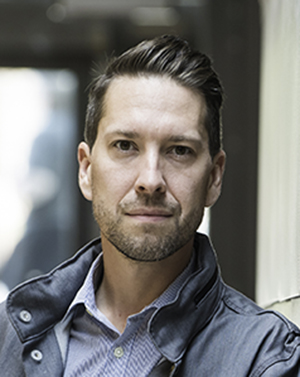
Jesse Kirkpatrick
An ethical question is at the forefront of the self-driving car industry: Who gets to live when a driverless car is forced to decide between two accidents, one that will kill pedestrians or one that will kill its passengers? In the case of several pedestrians in harm’s way, which ones survive?
Though the technology is new, the discussion “spotlights questions moral philosophers have been asking for hundreds of years,” said George Mason University professor Jesse Kirkpatrick, who is also acting director of Mason’s Institute for Philosophy and Public Policy.
It’s an especially critical question today, as automakers and technology giants spend billions to become leaders in the field of autonomous driving.
“There appears to be some rough agreement that humans should be preferred over animals, and that the young should be spared and sparing more lives is preferred over sparing few,” Kirkpatrick said. “What’s less clear is how this potential agreement might vary across communities, cultures and countries, and how this variation ought to be factored into law, policy and design.”
The agreement Kirkpatrick refers to comes from the Moral Machine, a worldwide survey gathering human perspective on moral decisions made by machine intelligence. It has had 40 million responses from 233 countries and territories.

Jonathan Gifford
Even so, Kirkpatrick has reservations about the methodology.
With a self-selected sample who answered online, the respondents “do not represent the views of much of the population who don’t have access to the internet,” he said. “I’m also concerned about how seriously respondents weighed their recorded decisions. Given these limitations, the study should not be relied upon when making policy or design decisions.”
What the Moral Machine can contribute, Kirkpatrick said, is the public discourse desperately needed as autonomous vehicles find their way onto our streets, which is happening sooner rather than later for Washington, D.C., residents.
Ford announced in October its plan to launch self-driving cars in Washington, D.C., in 2019. The cars will survey data in preparation for Ford’s ultimate goal of hosting commercial self-driving taxis and delivery services by 2021.
“Deploying driverless cars in a complex urban domain like D.C. is extremely challenging,” said Mason professor Jonathan Gifford, director of the Center for Transportation Public-Private Partnership Policy. “Much relies on the fidelity of the underlying digital maps on which the machine relies, as well as the fidelity of the sensors that provide real-time information about objects in the immediate environment.”
Gifford notes these objects aren’t always static, making the task particularly challenging.
Ultimately, “we need to ask the role democratic citizens ought to play in deciding how such technology is tested on a street in their community, near their place of business, worship or their kids’ school,” Kirkpatrick said.
Jesse Kirkpatrick can be reached at 202-631-7307 or jkirkpat@gmu.edu.
Jonathan Gifford can be reached at 703-993-2275 or jgifford@gmu.edu.
For more information, contact Mariam Aburdeineh at 703-993-5918 or maburdei@gmu.edu.
About George Mason
George Mason University is Virginia’s largest public research university. Located near Washington, D.C., Mason enrolls 37,000 students from 130 countries and all 50 states. Mason has grown rapidly over the past half-century and is recognized for its innovation and entrepreneurship, remarkable diversity and commitment to accessibility.
